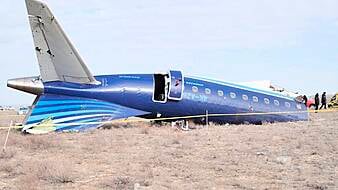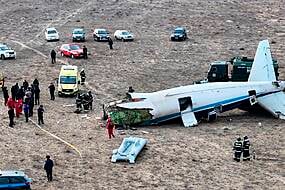The United States government has sanctioned six Chinese entities it said were linked to Beijing’s aerospace programmes as part of its retaliation over an alleged Chinese spy balloon that traversed US airspace.
The economic restrictions followed a pledge by Joe Biden’s administration to consider broader efforts to address Chinese surveillance activities and will make it more difficult for the five companies and one research institute to obtain American technology exports.
The move is likely to further escalate the diplomatic row between the US and China sparked by the balloon, which was shot down last weekend off the Carolina coast.
The US said the balloon was equipped to detect and collect intelligence signals, but Beijing insists it was a weather craft that had blown off course.
The incident prompted US secretary of state Antony Blinken to abruptly cancel a high-stakes trip to Beijing aimed at easing tensions.

The US Bureau of Industry and Security said the six entities were being targeted for “their support to China’s military modernisation efforts, specifically the People’s Liberation Army’s (PLA) aerospace programs including airships and balloons”.
It added: “The PLA is utilizing High Altitude Balloons (HAB) for intelligence and reconnaissance activities.”
Deputy secretary of commerce Don Graves said on Twitter his department “will not hesitate to continue to use” such restrictions and other regulatory and enforcement tools “to protect US national security and sovereignty”.
The six entities are Beijing Nanjiang Aerospace Technology, China Electronics Technology Group Corporation 48th Research Institute, Dongguan Lingkong Remote Sensing Technology, Eagles Men Aviation Science and Technology Group, Guangzhou Tian-Hai-Xiang Aviation Technology, and Shanxi Eagles Men Aviation Science and Technology Group.
The research institute did not immediately respond to a request for comment. The other five entities could not be reached.
On Friday, a US military fighter jet shot down an unknown object flying off the remote northern coast of Alaska on orders from US President Joe Biden.
The object was downed because it reportedly posed a threat to the safety of civilian flights, instead of any knowledge that it was engaged in surveillance.
But the twin incidents in such close succession reflect heightened concerns over China’s surveillance programme and public pressure on Mr Biden to take a tough stand against it.







